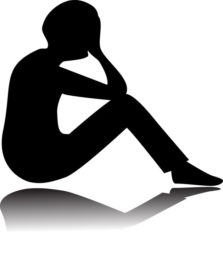Education for Depression Counselors
Depression counselors are mental health counselors who specialize in the various dimensions of Depression.
Depression counselors are able to conduct testing/assessments to determine diagnosis and assess the severity of each case. A common assessment is the Depression Anxiety Stress Scales. Depression counselors must also make a careful assessment to determine whether an individual is at risk for suicide. Patients should be monitored closely throughout the treatment process to ensure that they remain safe at all times.
The word “depression" has become common in our vernacular. Depression is the condition characterized by feelings of severe despondency and dejection.
Clinical depression is the more severe form of depression, also known as major depression, or major depressive disorder.
Depression counselors may also treat an accompanying disorder such as anxiety. One very important facet to this type of counseling is being able to determine clinical depression apart from ordinary daily life event episodes of sadness and from normal experiences of grief. We all go through tough times; we don’t all suffer from depression.
Depression counselors may implement various treatment options such as cognitive behavioral therapy. Behavior therapy emerged from cognitive theories of depression. Advocates of the cognitive theory of depression have theorized that thoughts, feelings, and behaviors are connected.
Depression is believed to be maintained by distorted and biased cognitions that affect the individual’s view of himself, his future, and his environment. When depression brings on extreme thinking patterns, cognitive therapy can help bring the patient’s thinking into perspective. The therapist can help the patient mold more constructive thought processes and keep them reinforced.
The counselor may choose to implement a psychodynamic approach. There are other types of therapy, as well, that can be utilized. The therapist is able to employ a combination of techniques, as well.
Education and Licensing for Depression Counselors
A Master’s degree is usually expected for professional mental health counseling. Some states will allow individuals with lower levels of education to counsel under supervision at agency settings, but all states will require a graduate degree for private practice in mental health counseling.
Different states have varying licensing standards, so a prospective counselor will want to become familiar with his or her state board before pursuing graduate education. Pursuing the highest levels of licensing you can is always a good plan to ensure that reimbursement goes smoothly. A common requirement is 60 graduate semester hours in counseling.
Mental health counseling programs are accredited by CACREP. Often, this is the best option. A counselor can often achieve a similar level of licensing, though, by enrolling in a Master’s program in counseling psychology. Such programs are very selective.
Depression counselors should customize their supervised practice experiences toward experience that is directly related to their target population. Make sure that you get the quality experience you need.
Salary and Career Expectations
According to The Bureau of Labor Statistics, the average depression counselor in the US earns between $32,720 and $54,320 per year.

